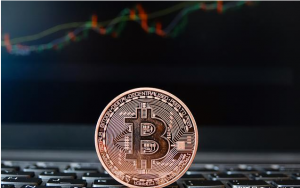
After the Netflix web series “Squid Game” exploded, the virtual currency market gave birth to a “Squid Coin” (SQUID) named after the brand. The coin has been on a surge since its release, rising up to 2,300 times in the past week, with the price reaching a staggering $2,861.80 (about RMB 18,309).
However, on November 1 EST, Squidcoin suddenly flash crashed, falling from $2861 per coin to $0.0007 in 5 minutes, a drop of 99.999976%. And according to the blockchain tracking and analysis platform BscScan data, there are still about 40,000 people holding the virtual coin after the flash crash occurred.
Squidcoin in the hot seat
According to reports, Squidcoin is an exclusive token for a gaming platform with the same name as Squid Games. The platform mimics the six rounds of the TV series, with the prize money awarded to the eventual winner being paid out in the form of squid coins.
Unlike in the TV show, the platform says, “We obviously don’t offer fatal consequences!” And, while the show’s jackpot is capped at $38.5 million, this simulated game will have no limit on the final prize cap or the number of participants.
However, players must first pay a preset price of Squid Coins to participate in each game, and some rounds will also require users to purchase custom NFTs (non-homogenized tokens, similar to game skins or props in this game) that are sold on the platform. Some of these NFTs feature characters from the show, including guards wearing red suits and black masks.
According to the whitepaper, Squid Coins began pre-selling on October 20 and “sold out in less than 1 second. Squidcoin was officially launched on Oct. 29 at a price of 1 cent per coin and surged nearly 2,400 percent to $2.22 in 24 hours after launch, with a market cap of more than $174 million. In the following days, the price of Squidcoin climbed, reaching $2,861.8 before crashing on November 1.
With the price of squidcoin skyrocketing, participating in the aforementioned game is not cheap. To play the final game, players must pay 15,000 Squidcoins and purchase an NFT. The entry fee for each round is split equally between the developer (10%) and the bonus pool (90%).
The platform also offers a pinball pool where holders can earn tokens by pledging to earn passive income by using their cryptocurrency holdings as collateral.

According to media reports, the founder of Squidcoin has said that the project is an official token partner of Nifty. It has also established a strategic partnership with CoinGecko, a virtual currency platform.
However, in an interview with the media, CoinGecko co-founder Bobby Ong refuted these claims: “Squidcoin does not meet our listing criteria, so it will not be listed and traded on Coincecko. It’s likely a scam.”
In the days leading up to the big crash, there were complaints from investors that they were unable to sell their Squidcoin holdings on Pancakeswap, the only virtual currency platform where the cryptocurrency can be traded. Subsequently, the Squidcoin founder explained that it was because the project deployed an innovative “anti-dumping technique” that restricts people from selling tokens when demand drops.
According to media reports, the project had several flaws early on, such as the official website was registered less than a month ago and the total usage time was even less than three weeks; there were also many grammatical errors in the narrative about the project; the founder of Squidcoin did not have a profile on LinkedIn, etc.
The reason behind the crash and the identity of the developer of this coin are still unclear. Currently, the coin’s website has been taken offline, its associated social media accounts have been suspended from updating, and its Twitter account has refused to accept direct messages (DMs). According to CoinMarketCap editor Yousra Anwar, developers who spoof cryptocurrencies generally do not publish their identities. As a result, these developers can escape regulation and scrutiny in various countries once investors notice that the funds are moving differently.
In addition, according to media reports, the project’s issuer has now run away with the money, costing investors at least $2.1 million. Analysis shows that the project’s founders used the TornadoCash protocol to hide transaction details, thereby transferring funds and cashing out the equivalent in coins (BNB). The address has now been flagged as “involved in a scam”.
On social media, some users exclaimed, “Another runaway story,” while others lamented, “Most of the future cryptocurrencies will be like this,” and “The coin itself is a squid game.
According to media reports, this kind of scam is often called “rug pull” by cryptocurrency investors. A “rug pull” is when a cryptocurrency developer suddenly withdraws support and abandons a project without warning, quickly rolling up investors’ money. The “Squidcoin” is a typical “carpet pulling” scam in the cryptocurrency sector.
Virtual currency, as the name implies, is not real money. Since May of this year, domestic regulatory policies on virtual currencies have continued to tighten, and the crackdown on virtual currency trading has been increasing.
On September 24, ten ministries and commissions, including the Central Bank, the CBRC, the Internet Information Office, the Foreign Exchange Bureau, the Supreme People’s Court and the Supreme People’s Procuratorate, issued a notice on further preventing and disposing of the risk of speculation in virtual currency trading, specifying that virtual currencies that are not issued by monetary authorities, use cryptography, distributed accounts or similar technologies, and exist in digital form, such as bitcoin, ethereum and other so-called “stable coins”, do not have the same legal status as legal tender and cannot circulate in the market as currency.
The industry analysis, speculation in virtual currencies there are many risks, virtual currencies are vulnerable to “Musk-style” speculation, investors in a short period of time to be “cut leeks”, thus suffering huge economic and property losses.
The public should fully understand the nature and risks of virtual currencies such as Bitcoin, resist the temptation to protect their wallets, and not participate in any form of trading or speculation, stressed Dong Ximiao, chief researcher at China Merchants Financial.


